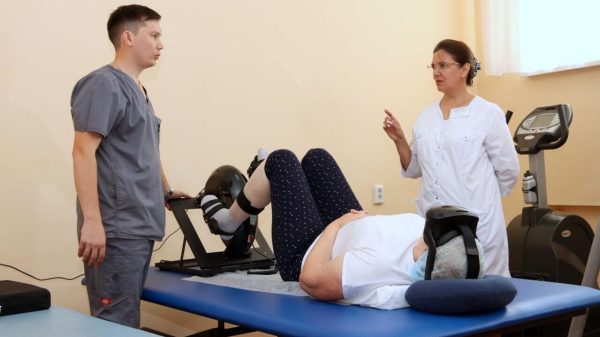 The Prime Minister hopes to improve the UK's economic performance. Photo: RICHARD PAUL/AFP
The Prime Minister hopes to improve the UK's economic performance. Photo: RICHARD PAUL/AFP
Men have been working an hour less every week since The lockdown dealt a blow to Rishi Sunak's efforts to stimulate the economy.
New figures released by the Office for National Statistics (ONS) show that In 2022, men worked an average of 35.3 hours per week—about an hour less than in 2019 and more than three hours less than in 1998.
< p>In contrast, women slightly increased the average number hours per week from 27.4 in 2019 to 27.9 hours in 2022. This was not enough to compensate for the reduction in men's hours, which resulted in the loss of 310,000 people in the labor force.< /p>
The figures are a blow to the Prime Minister's plans to improve Britain's economic performance after a decade of productivity decline that has led to falling real wages and slashing tax revenues.
The statisticians also revealed generational differences in trends in the number of hours worked. hours.
ONS reported that Gen Z men and women worked fewer hours on average compared to pre-Covid, while baby boomers worked longer.
The ONS said: “Trends in the average number of hours worked per week are very different for men and women.
“For men, the average number of hours worked per week has fallen significantly… By comparison, the average number of hours worked per week has fallen significantly. the number of hours for women has increased.”
The ONS said the overall shift towards shorter working weeks was also due to women and older workers making up a larger proportion of today's workforce, as these groups initially worked fewer hours.
However, the ONS said that the general shift towards shorter workweeks has also been driven by the fact that women and older workers make up a larger share of today's workforce, as these groups initially worked fewer hours.
However, it added that since 1998 there was a “significant reduction” in the number of hours worked full-time by men aged 25 to 49.
It said the increase in the number of hours worked by women was «a sign of greater flexibility in work arrangements» as working from home has become more common during the pandemic.
But it added that the increase in the number of hours worked by women has become more common. hours worked did not compensate for the reduction in men's working hours.
Statisticians said the average working week for both men and women is now about 20 minutes shorter than in 2019.
The ONS said the overall reduction in working hours is equivalent to 310,000 fewer people working. By comparison, Downing Street's decision to cut National Insurance by 2p in the Autumn Statement is forecast to increase employment by around 28,000 and total hours worked by 94,000.
Statisticians noted that the average number of hours worked by men fell at every age. excluding those over 65 during the pandemic, a continuation of trends seen over the previous quarter century.
Louise Murphy, an economist at the Resolution Foundation, said the reduction in working hours was driven by men in low-paid jobs.< /p>
She said: “We know that men with higher incomes tend to work longer, and men with lower incomes tend to work less.”
Ms Murphy said men working in low-paid jobs were increasingly saying they were cutting back on hours. because their work was poor quality and inflexible.
She said: “People tell us: I will work as many hours as I need to to pay the rent and bills. .
“Many low-earning people do not have the benefits that some high-earning people take for granted, such as sick pay, flexible work hours or time off if a child gets sick.
p>“For these people, working full time means working evenings or weekends, and so the only way to achieve flexibility is to reduce their working hours.”
Men still make up 17.2 million of the UK workforce, according to compared to 15.7 million. millions of working women, according to the ONS.
Ms Murphy said the trend towards shorter working hours was a concern for policymakers.
She said: “I think people will definitely are concerned about this.
“If you compare it to 2010, when overall economic growth was also quite sluggish, the only thing that really had a positive impact on the UK was the increase in the labor force.
p>» If you look at the rest of the 2020s, not only do we see that one of the biggest stories of the pandemic has been the rise in economic activity, but there are also signs that men, in particular, are working fewer hours.
“If we think about how to achieve growth in the future, we need to think about how to ensure that we have the necessary labor supply to do it.”




















































Свежие комментарии